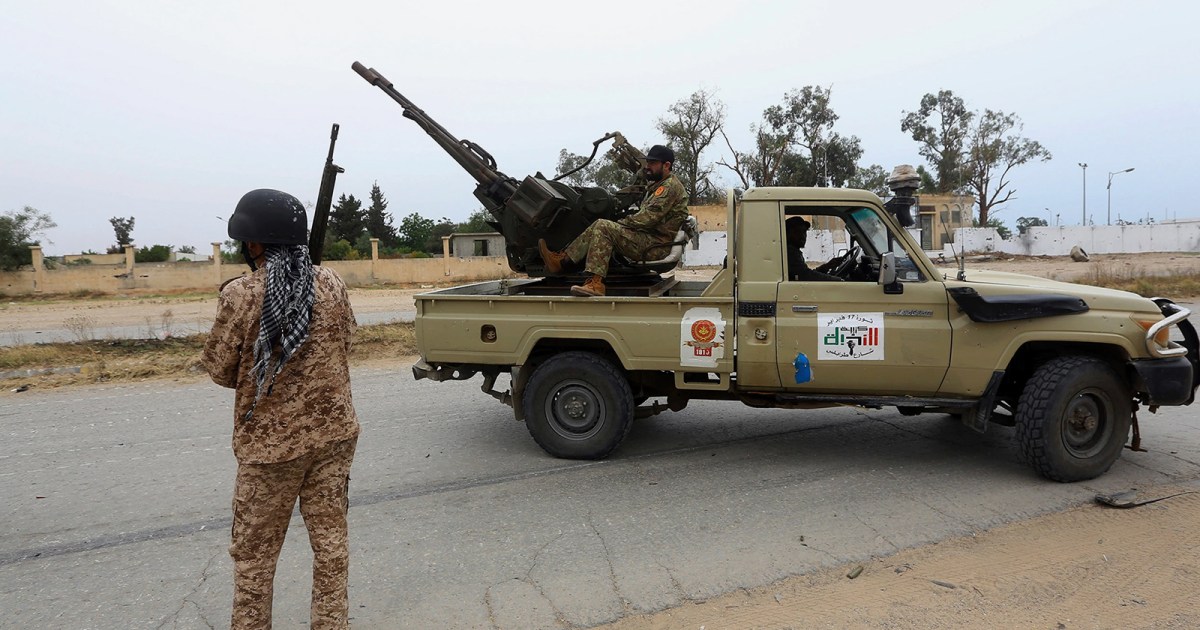The Libyan capital, Tripoli, witnessed, on Thursday evening, a security alert after the House of Representatives assigned Fathi Bashagha to head the government, and while the United Nations issued a clear position on the recent developments, Abdel Hamid al-Dabaiba confirmed that he is still exercising his duties as prime minister and naturally.
Sources confirmed to Al-Jazeera raising the level of security alert in the vicinity of the headquarters of the Libyan government in the capital, Tripoli, and strengthening the capabilities of the security forces that secure the headquarters and its surroundings with more individuals and mechanisms.
The sources stated that Prime Minister Abdel Hamid al-Dabaiba is practicing his work normally from inside the government headquarters.
Official government platforms announced that Dabaiba met with dignitaries and dignitaries from the city of Murzuq, southern Libya, and discussed with them the procedures for the return of the displaced and displaced from the city.
split back
The Libyan House of Representatives, meeting in Tobruk (east of the country), unanimously chose, on Thursday, former Interior Minister Fathi Bashagha as the new prime minister, which means the return of the political division of Libya.
Earlier on Thursday, Parliament spokesman Abdullah Blehaq told the German News Agency that the House of Representatives had voted to choose Fathi Bashagha as the new prime minister.
Blihaq added that the council also adopted a constitutional amendment in agreement with the Supreme Council of State regarding the road map for the next phase that includes several points, most notably the formation of a committee to discuss controversial articles in the draft constitution.
He explained that the proposal provides for “amending paragraph 12 of Article 30 of the Constitutional Declaration, so that a committee of 24 experts and specialists representing the three regions will be formed, to be chosen equally between the (House of Representatives) and the State (Supreme Council), and the committee reviews the articles in dispute in Draft completed constitution and possible amendments.
It also states that “the committee finishes making the amendments within 45 days, and the amended draft constitution is referred directly to the High Electoral Commission for a referendum. If it is not possible to make the amendments after the expiry of this period, a committee formed by the House of Representatives and the state, within a month, prepares a constitutional rule and binding electoral laws.”
reject and support
On the other hand, Abdel Hamid al-Dabaiba adheres to continuing to head the government on the basis that the Political Dialogue Forum set the term of the transitional executive authority at 18 months, extending until June 2022, according to the United Nations mission in Libya.
The United Nations has confirmed that it continues to support the government of Abdel Hamid Dabaiba.
On Thursday, United Nations spokesman Stephane Dujarric said that the international organization continues to support Abdel Hamid Dabaiba as prime minister of Libya.
Dujarric was asked, during his daily press conference, whether the United Nations still recognizes Dabaiba as prime minister, and he replied, "Yes."

